March was Social Work Month, a time to honor the contributions of social workers in improving lives and communities. The month highlights their dedication to advocating for social justice, supporting mental health and providing vital resources to those in need.
Social Work Month also emphasizes the importance of recognizing the diverse roles social workers play in fields like health care, education and family services, and it encourages appreciation for their tireless efforts in creating positive change.
But of course, we don't need a special month to celebrate UTMB's social workers—we appreciate them all year long!
Meet the social worker team at UTMB.
What do you love about being a social worker?
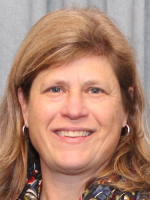
Rebecca Castro, manager (29 years in health care, all of them at UTMB): Helping folks learn to be the person (or social worker) they aspire to be.
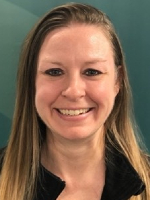
Shanna Hartley, CBC—Friendswood, Webster, South Shore, Bay Colony, Marina Bay, Victory Lakes Town Center (24 years in profession, nine at UTMB): I enjoy being able to engage with people and provide any form of guidance or assistance possible.
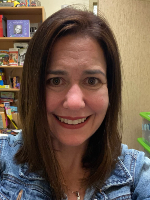
Tia Jaynes, Pediatrics—Bay Colony Primary and Specialty clinics, Clear Lake Pediatric Specialties (21 years in profession, 15 at UTMB): I love working with my kiddos and their families, and I love that I get to follow them on their journey through their child’s life. I also love the versatility of social work—you can do just about anything!
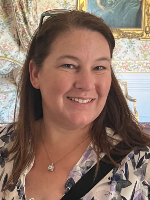
Sarah Linde, Adult Specialties (14 years in profession, 10 at UTMB): The variety of experiences that result with a patient being in a better place than they were when initial contact occurred.
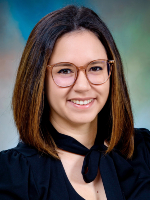
Jazmine Martinez, social worker team leader (Primary Care Pavilion, Victory Lakes Town Center) (three years in profession, nine at UTMB): The opportunity to make a difference in people's lives. Building relationships, empowering them and advocating for them. Each day brings a new challenge, but the positive impact on patients’ lives makes it all worthwhile!

Pam Massey, Pediatrics—Island Primary and Specialty (PCP), Island Pediatrics West (IPW) (30 years in profession, 8 at UTMB): Developing relationships to help caregivers whose children face complex medical needs navigate a very different path than they anticipated as they learn the implications of their child’s diagnosis.
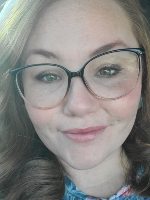
Marissa Meader, FM - Galveston PCP, Stewart Road (7 years in profession; 6 at UTMB): I love hearing people's stories and being reminded of how resilient we can be in the world we live in. I also love to see people light up when they feel supported and heard.
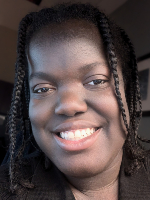
Khadesia Nedd, FM—Dickinson (2 years in profession, 1 month at UTMB): Since I came from customer service, I liked being able to work for the people. I always enjoyed hearing stories from across Texas to discover how others lived. Those skills and interests translated perfectly into social work. I feel like I'm using every part of my brain and personality on a daily basis to delve deeper into a patient/client. I'm challenged every day.
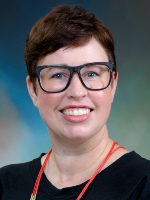
Savannah Parks, Health Resource Center, LGBTQ Navigator (19 years in profession, 8 ½ at UTMB): I love witnessing the strength and resilience in our patients. Seeing them overcome obstacles and being a part of their achievements, even small ones, is an honor and privilege.
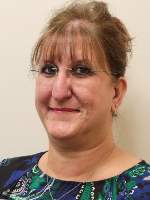
Laura Perez, CBC - Texas City, Alvin (“a little bit” of time in profession, 10-plus at UTMB): Helping others in times of crisis or need.
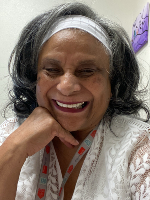
Gloria Pitre, RWSP Beaumont, Orange, Pasadena (31 years in profession, 1 ½ at UTMB: I love watching people's hurt and sorrow shift and change as healing takes hold.
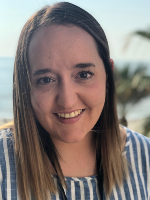
Virginia Pixley, Geriatrics (8 years in profession, 1 at UTMB): The honor of helping people in their most vulnerable moments and sometimes in really creative ways.
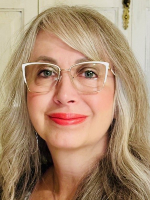
Bridget Simonin, Oncology (34 years in profession, 3 ½ months at UTMB): I like everything about being a social worker. It is a calling, and as a social worker I have a passion to help others. I like making a difference in someone’s life.
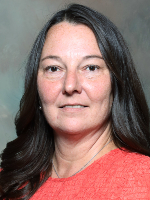
Michelle Sitkowski, Bariatrics (23 years in profession, 3.8 at UTMB): Seeing people living and feeling better.
Katy Smith (no photo available), Home health initiation (24 years in profession, 26 at UTMB): Helping people during challenging times.
Shellie Wolf (no photo available), community clinics (27 years in profession, 10 at UTMB): Seeing people come out of their darkness, crisis, and begin to thrive again. And to be there in celebration of their successes.
Can you share a fun or memorable experience from your work?
Castro: After 29 years, that is a difficult thing to narrow down. I keep newspaper clippings of many of the emergencies I worked on during my time in the ER. I also keep items from former patients' funeral services. And I still have the paper copy of an assessment I wrote on a woman who was a meth user and came to the ER to get clean. She and I maintained correspondence for many years after her ER visit, which was always special to me.
Hartley: The most remarkable experience for me as a social worker comes from a relationship I formed with a grandmother and her grandson while working at CPS. I was the investigator who recognized the need for support and services to a family, but it could not be done without some form of intervention to keep the baby safe. I assisted in getting the family to the grandparents' home out of state (not a normal action at that time) and got services started in the state they were traveling to. Over 20 years later, the child and grandmother still reach out to me and express appreciation for taking that step, as it has allowed the child to grow up in a safe and supportive environment.
Jaynes: Sharing the joy with our families when we do their End of Chemotherapy parties and our patients get to ring the bell! There is nothing more fun or more memorable.
Linde: I have been so fortunate to work with a huge variety of people in my time at UTMB, I loved sitting on a curb at a hotel with an unhoused patient that was COVID positive, trying to help them navigate their health care. Nothing could prepare us for that situation, but as social workers we were willing to figure it out and make it work!
Martinez: I have worked with a lot of patients over the last few years. One I often think about is a spicy 77-year-old woman. I remember working with her often as a PSS, and the social worker before me worked with her often as well. The Powell clinic and team knew this patient well. Her PCP often referred to her as being in his top five patients.
She began seeing the ER for acute needs and multiple hospitalizations. She was diagnosed with anxiety and other medical conditions. I started seeing her as a social worker in 2022. I remember walking in the room to a lady with bright blue eye shadow on that matched her shirt. I introduced myself—and she instantly wanted nothing to do with a social worker; in her mind, I was going to put her in a nursing home!
It took a while and multiple visits to gain her trust. She allowed me to meet the man she was dating at the time and even allowed me to call her daughter, who she was estranged from. We were able to mend the relationship! She was diagnosed with Alzheimer’s dementia in 2023. Her caregiver/boyfriend was unable to care for her any longer. Her daughter started coming down to help clean out her home to sell it, and together with her PCP we were able to talk the patient into moving in with her daughter in another town.
The patient moved in with daughter several months later. The last update I got from her daughter in 2024 was that the patient was planning to move to a nursing home due to behavioral disturbances. But her daughter was able to have spent those months with mom, especially cooking together! Daughter says she is still spicy!
Massey: The volume of caregivers who bring their children to pedi appointments reeking of marijuana and the stories they come up with to explain it.
Meader: I have had many memorable moments as a social worker, but I would say the most memorable is being able to help my homeless Alzheimer's patient get his disability and get his prized possession (his dog) medical care.
Nedd: I'll always remember working with the residents in a nursing home. I talked to the president of the resident council and asked her if she truly felt heard and in control. Don't tell anyone, but I encouraged her to take control of the meetings. She ended up kicking the activity coordinator out and let me sit in on the meetings so that we could handle their grievances in the way they liked. I love that I helped them achieve some autonomy in their circumstances.
Parks: I facilitated a caregiver support group, and I had a couple who would attend every week. The wife was the caregiver for her husband with dementia. One of our regular sessions was Zen Hour, where we would play music and offer activities focused on self-care. Without fail, this couple would end up in the back of the room, holding each other close and swaying to the music—a display of love that often brought me to tears.
He unfortunately succumbed to his disease, and I didn’t see his wife for several months. One Zen Hour, she returned, bringing along their two daughters. They spoke on their grief but also the mountain of memories he left with them. Toward the end of the session, she and her two daughters went to the back of the room and held each other close and swayed to the music. It paid tribute to the couple’s love and devotion, even during the most difficult of their days together. It was a beautiful moment that I carry in my heart.
Pitre: One night in the ER at San Francisco General, multiple patients came in as the result of a major accident involving several cars in a high-speed chase. The San Francisco Police Department took over the ER as they usually did when one of their own was injured. They always barred the ER social workers from providing the service we gave any ER patient. This particular night, the SFPD's losses were so big, they all became everyday human beings who needed help, support, care, compassion, direction, guidance, empathy and sympathy just like any other human being in the face of tragedy.
Pixley: Not fun, but VERY memorable. I was working in the ICU in a rural-ish hospital, and there was a young man there because his lungs were failing. He had a chronic genetic condition that ended in him needing a lung transplant. However, he had no insurance, no financial support (he was clawing himself out of homelessness at the time) and very limited social support. We asked multiple transplant centers in different states, but nobody was willing to get him this lung. He decided he would rather withdraw care than go the trach, PEG, Medicaid NH route. I was heavily involved in this case and got to be in the room when the doctors were having this discussion with him. We were able to contact a sister who lived out of state, and the hospital flew her in to be with him when care was withdrawn. I will never forget his name, that situation or being there for them at that time.
Simonin: There are many memorable stories that I can share while working as a social worker. One that stands out in my mind is when I helped a physician recognize that a patient was suffering from depression. The patient had disabilities and couldn’t ambulate on their own. Once the patient’s depression was treated, the patient had the motivation to learn to walk again. It was amazing to see the change in the patient not only mentally but physically.
Sitkowski: My first memorable moment as a new social worker was just months after graduating with my BSW. The social work program chair asked me if I would teach his courses for the next year. The honor and pride that I felt that day has been with me for the last 20-plus years. It was the greatest compliment to have the man that taught me for the last four years trusting me to teach his BSW students social work practice.
Smith: Assisting a patient who lived in his truck under the Galveston Causeway complete a SNAP application and disability forms by bringing my laptop to him. He couldn’t drive due to eye issues but lived there in his truck. My daughter and I also brought him dinner one Thanksgiving Day.
Wolf: Providing support to an elderly patient with intellectual/development disabilities who needed help caring for her sick guinea pig, which ended up dying. We then had a funeral for her guinea pig.
Not included:Jocelyn Salinas, CBC - Angleton, Lake Jackson
Something extra from LinkedIn
This post was made by Christina Y. Rodriguez, host of the Outcomes podcast, which focuses on health care executive insights, social impact and health care finance.
This is where I find you: Midnight in the ED.
You didn’t come for a social worker.
You came because your legs won’t stop swelling.
You don’t know that your body is now their business case.
Billing codes assigned, throughput clock ticking.
You’re labeled “noncompliant” for missing dialysis—
but no one asked how you’d get 40 miles without a car.
Or how you’d leave your mother, who needs your help at night.
Or how food stamps don’t cover low-sodium meals.
You’re here with fluid in your lungs
and shame in your voice.
This is where I find you.
Sitting upright so you can breathe.
Begging me not to call the hospital near your house—
“they treat me like a burden there.”
And somehow, we talk about your mom.
Your car breaking down three months ago.
How you were on track—before your hours got cut.
I handwrite the appeal to Medicaid.
I message nephrology.
I walk the attending through the real story
so the note reflects context, not blame.
And I flag the case manager for continuity.
You sigh for the first time all night.
Because, social work is not fluff.
Not extra
Not "the little things"
It’s the difference between readmission
and reimagining care.
When 80% of health outcomes are tied to social risk,
but 90% of funding goes to medical treatment—
we are wasting our own time.
This is where I find you.
And maybe here tonight,
it won’t be where I leave you.
